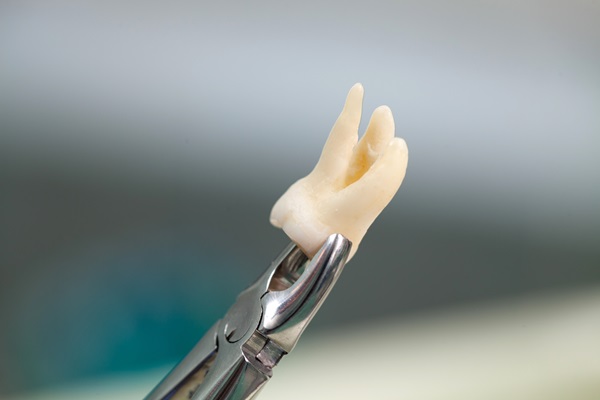Quick Guide to Wisdom Teeth Extraction
is a procedure that few look forward to; however, it is often necessary in order to eliminate pain and crowding in the mouth. While many individuals are familiar with the procedure, there still may be some unknowns about the process and what to expect.
Understanding wisdom tooth extraction
Below is an overview of the wisdom tooth extraction process, including how it works and what to expect afterward. This information can be helpful to review when preparing for the procedure.
The extraction process
During a wisdom tooth extraction, the individual will be given medication to avoid pain during the procedure. Then wisdom teeth are carefully removed from the oral cavity. All four may be extracted at once, or there may be more than one procedure for different teeth. Then, a cleaning will be done in order to ensure that there is no debris left behind that could cause an infection. To complete a wisdom tooth extraction, the incisions will be carefully sutured to close up the wounds.
When it is needed
Wisdom tooth extraction is needed when the wisdom teeth erupt and start to cause discomfort or crowding in the mouth. Discomfort can get in the way of daily life and crowding can pose a risk to oral health, as well as the alignment of the teeth.
It is important to note that not everyone experiences wisdom tooth eruption. In this case, extraction is often not necessary, unless the teeth are impacted and cause other issues.
What to expect and how to prepare
Most individuals will experience some levels of discomfort and disorientation immediately after a wisdom tooth extraction due to the effects of the surgery. There will also be slight bleeding, inflammation, and swelling after a wisdom tooth extraction, which can all be remedied with gauze changes and medication. Because the mouth undergoes a lot of stress during wisdom tooth extraction, there is usually a pretty involved recovery process, requiring the individual to have help from a family member or friend.
After wisdom tooth extraction
Once a wisdom tooth extraction is complete, individuals will have to undergo recovery and healing, which can take a week or so, depending on the number of teeth extraction. Following tips from a general dentist can aid in recovery:
- Work and school should be put on hold for at least three days.
- Pain medication should be taken in moderation with food.
- Fluids should be consumed in order to stay hydrated.
- Patients shouldn't smoke or use straws, as the inhalation can cause dry sockets.
- Diet should be adjusted to soft foods or liquid-based.
- Gauze should be changed regularly to avoid infection.
Learn more about wisdom tooth extraction
When preparing for a wisdom tooth extraction, it can be helpful to consult with a general dentist. Further information can be provided to help individuals prepare for the procedure. Reach out today to find out more about the process or to get started with a consultation.
Request an appointment here: https://www.communitysmilesnc.com or call Community Smiles at (919) 913-9075 for an appointment in our Chapel Hill office.
Check out what others are saying about our dental services on Yelp: .
Related Posts
Dealing with problematic teeth is vital to your current and future oral health, and sometimes this includes tooth extraction. Various dental issues can necessitate an extraction, but it is also important to note that not replacing the extracted tooth or teeth can harm your dental health. However, there are several methods and options to consider…
It can be hard to know exactly how to recover properly after tooth extraction. Long ago, there was a lot of pain involved afterward, however, modern-day dentistry has allowed for the evolution of less invasive techniques, which results in less swelling and less pain. Nonetheless, there are still a few things to consider after tooth…
A tooth extraction may be necessary if the tooth is too decayed to be repaired. After the tooth has been extracted, it is important to allow the area to heal completely. Eating the right foods can help speed healing and avoid any complications. Read on to discover the right foods for you.The reason that dentists…
Emergency dentists treat a range of oral health concerns, including toothaches. A minor toothache may not be an emergency, but a severe toothache that lingers for an extended period of time or suddenly worsens likely requires immediate dental care to prevent any additional oral health concerns and ensure ideal long-term oral health. This review highlights how…
